Virtual Event, 26 November 2021
Horasis convened its annual Horasis Asia Meeting on 26 November. Held on Horasis‘ ground-breaking digital conferencing platform, the event brought together over 400 of the foremost business and political leaders from across Asia and the world. Download the report and the programme.
Sandiaga Salahuddin Uno, Minister of Tourism and Creative Economy, Indonesia, said that “volatility, uncertainty, complexity and ambiguity are all represented in varying amounts across the issues facing governments and businesses. But well before the COVID pandemic confused the world’s supply chains, they were being disrupted by trade disputes, said Sansern Samalapa, Vice Minister of Commerce, Thailand. According to Nguyen Minh Vu, Vice Minister of Foreign Affairs, Vietnam, many investors have recently been attracted into Asian nations, simply building on former supply chains and building factories using well-trained local staff. Joseph Chan, Under Secretary for Financial Services and the Treasury, Hong Kong SAR opined that “keeping local talent active and developing is very important. So is an open legal system based on a global freedom of movement against which COVID pressed with its mandatory isolation”. Taro Kono, Member of Parliament, Former Minister of Defence and Foreign Affairs, Japan argued that Asia has become rather strong, and with its new free trade accords is changing to new regional systems. Preeti Sinha, Executive Secretary, United Nations Capital Development Fund, United Nations noted that the UNCDF had a good Asian overview and was looking at a circular investment model to help link small and medium enterprises (SMEs) though new physical and digital infrastructures to global trade. Emil Dardak, Vice Governor, East Java, Indonesia described this complexity in relation to the top industries in and around Surabaya, the capital of East Java.
 |
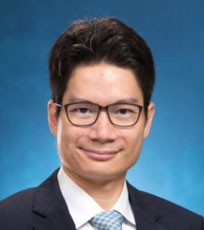 |
| Sandiaga Salahuddin Uno, Minister of Tourism and Creative Economy, Indonesia |
Joseph Chan, Under Secretary for Financial Services and the Treasury, Hong Kong |
|
|
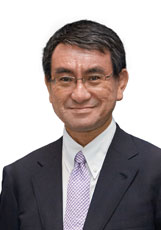 |
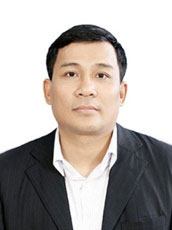 |
| Taro Kono, Member of Parliament, Former Minister of Defence and Foreign Affairs, Japan |
Nguyen Minh Vu, Vice Minister of Foreign Affairs, Vietnam |
Ranil Wickremesinghe, Former Prime Minister, Sri Lanka said that COP26 was disappointing as developed nations had offered aid, but this is not yet on the table and local finances are stressed by COVID. Oki Matsumoto, Chairman, Monex Group, Japan finds the ESGs goals are pushing everyone over all fronts. Sunil Kant Munjal, Chairman, Hero Corporate Services, India noted that there is a worrying antagonism across Asia as its geo-politics are complex and negotiations take a long time.
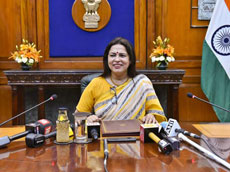 |
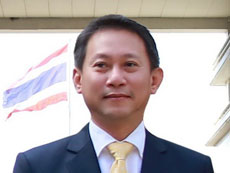 |
| Meenakshi Lekhi, Minister of State for External Affairs and Culture, India |
Sansern Samalapa, Vice Minister of Commerce, Thailand |
The co-chairs were:
 |
Bo Inge Andersson, Chief Executive Officer, Uzauto Motors, Uzbekistan |
 |
Erik Berglof, Chief Economist, Asia Infrastructure Investment Bank, China |
 |
Ashishkumar Chauhan, Managing Director and Chief Executive Officer, BSE, India |
 |
Vijay Eswaran, Chairman, QI Ltd, Hong Kong |
 |
Kris Gopalakrishnan, Chairman, Axilor Ventures, India |
 |
Tatsuo Hatta, President, Asian Growth Research Institute, Japan |
 |
Roger King, Founder and Chairman, ODS Holdings Inc., Hong Kong |
 |
Oki Matsumoto, Chairman, Monex Group, Japan |
 |
Girish Ramachandran, President Asia Pacific, TCS, Singapore |
 |
Murat Seitnepesov, Chairman, Caspian Week, Switzerland |
 |
Vinod Sekhar, Chairman and Group Chief Executive Officer, Petra Group, Malaysia |
The annual Horasis Asia Meeting is Asia’s premier gathering of the region’s most senior leaders from business and government. The meeting is poised to be the ideal platform to explore and advance regional cooperation, impact investing and sustainable growth. The location of the meeting rotates annually and recently has been held in Bangkok, Thailand (2016), Kolkata, India (2017), Binh Duong New City, Vietnam (2018, 2019) and digitally in 2020. With this meeting Horasis aims to present a systemic view of activities affecting the drivers of Asia’s economic success and how Asian businesses interact regionally as well as globally.
Horasis – a global visions community committed to inspiring our future – provides a unique platform for companies from emerging and developed markets to globalize their organisations. In addition to the Horasis Asia Meeting, Horasis hosts the annual Horasis Global Meeting, Horasis China Meeting, Horasis India Meeting, as well as the annual gatherings of the Horasis Visionary Circle.







COVID had disrupted social lives, and trade disruption was an issue. But the Philippines is to redevelop economic priorities towards the healthcare sector pivoting operations to products and services urgently needed during and beyond the health crisis.
Ramon Lopez, Secretary of Trade and Industry, The Philippines
India will become the manufacturing centre of world as it improves quality and reduces costs to increase exports.
Nitin Gadkari, Minister of Road Transport & Highways, Shipping and of Micro, Small and Medium Enterprises, India
Hong Kong may become the world’s newest financial centre. It has seen huge benefit from globalisation and has continuing accords in place.
Christopher Hui, Secretary for Financial Services and the Treasury, Hong Kong SAR
Asia’s priorities involve environmental protection, less conflict, and better respect to human rights.
Fabrizio Hochschild, Under-Secretary General, United Nations
Across the economies of the Philippines and the Pacific region IT infrastructure is seen as a key to growth, permitting urban and rural activities to be linked to enable seamless development.
Gregorio Honasan, Secretary of Information and Communications Technology, The Philippines
Women empowerment will support new finance models in Asia.
Cherie Nursalim, Vice Chair, GITI Group, Indonesia
China is going to emerge stronger from COVID crisis.
Zhi Peng, President, Tsinghua Asset Management Group, China
Asian nations are very diverse – and I believe this is a strength.
Nguyen Minh Vu, Vice Minister of Foreign Affairs, Vietnam
Thailand’s strengths will encourage more investment and trade with better business practices.
Sansern Samalapa, Vice Minister of Commerce, Thailand